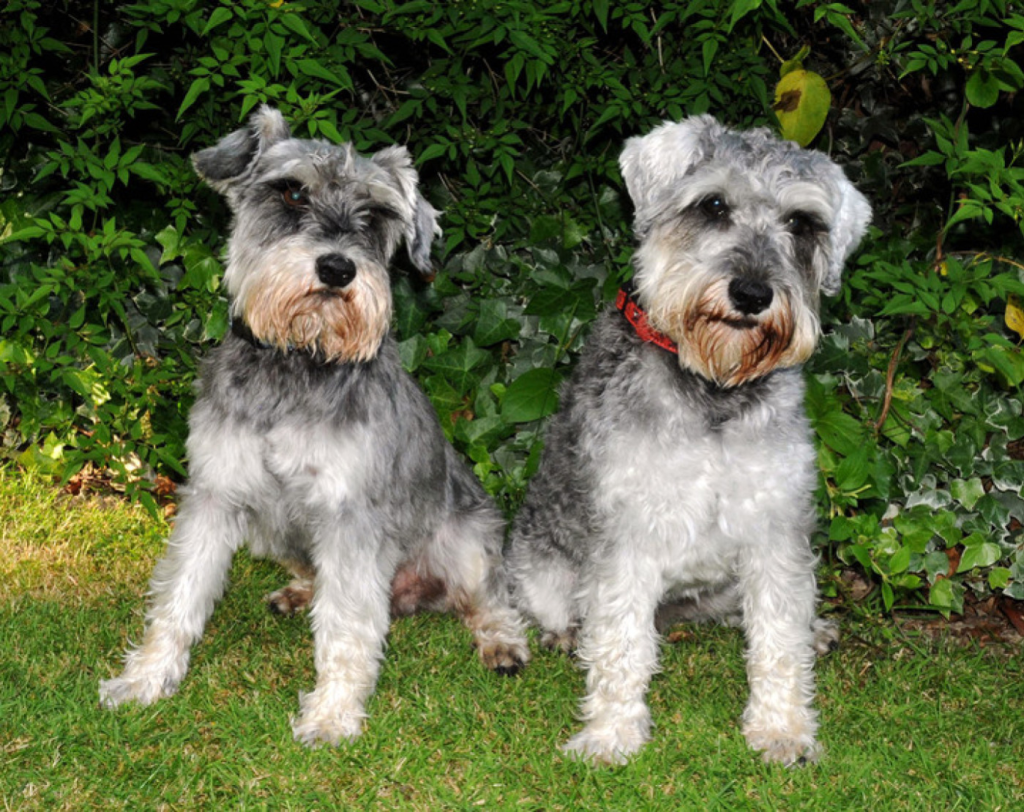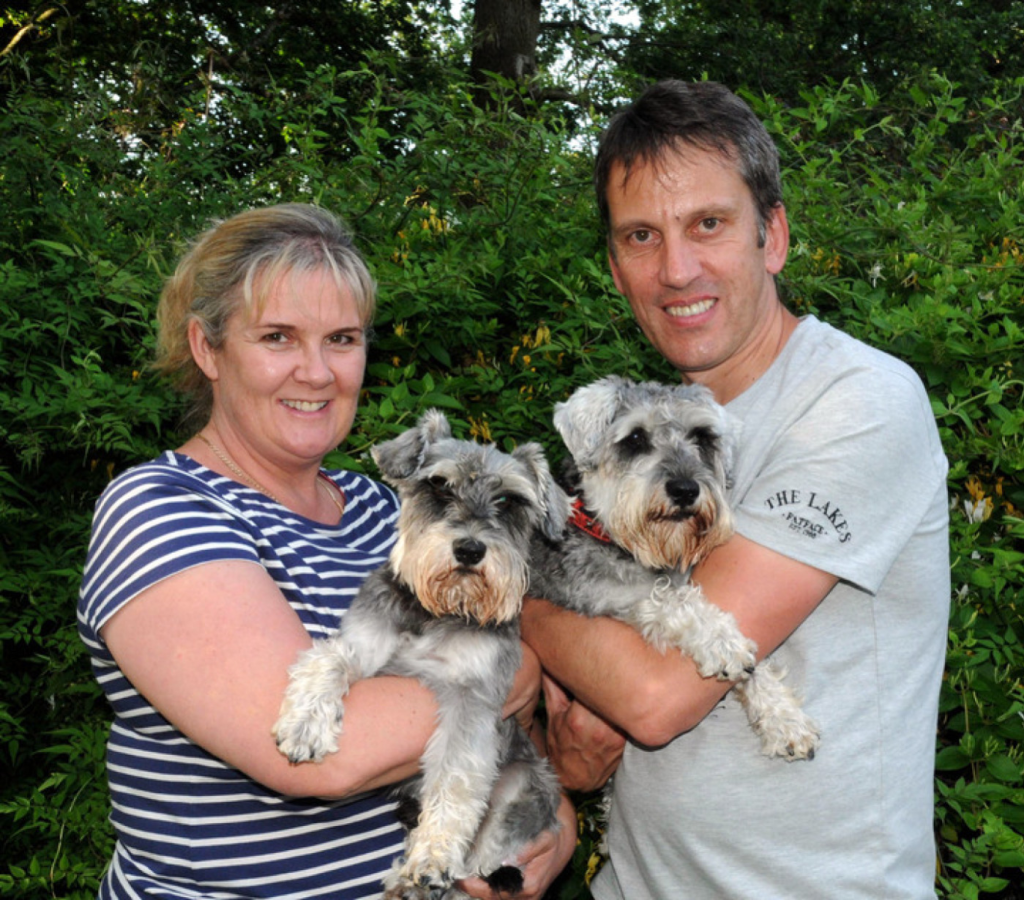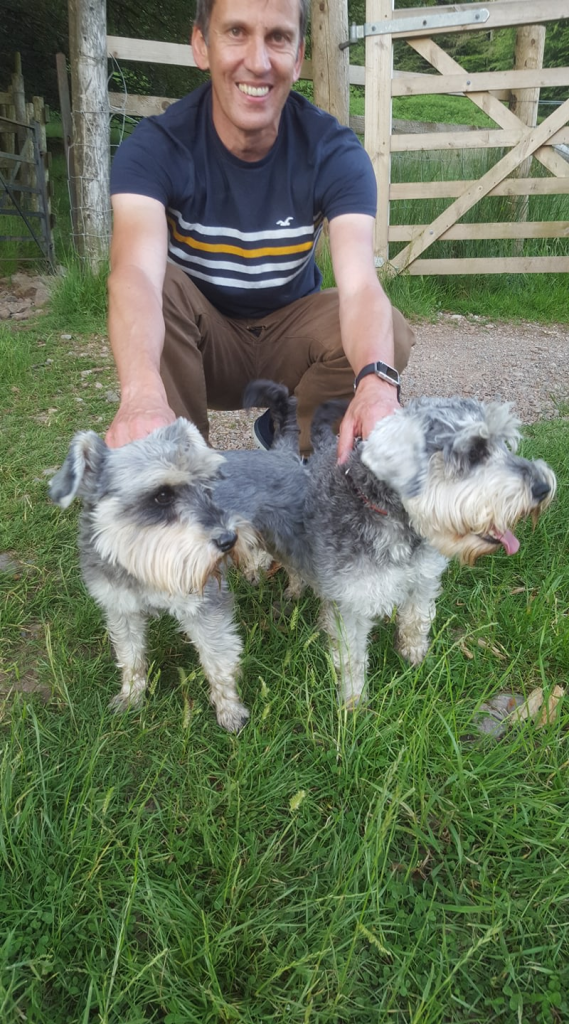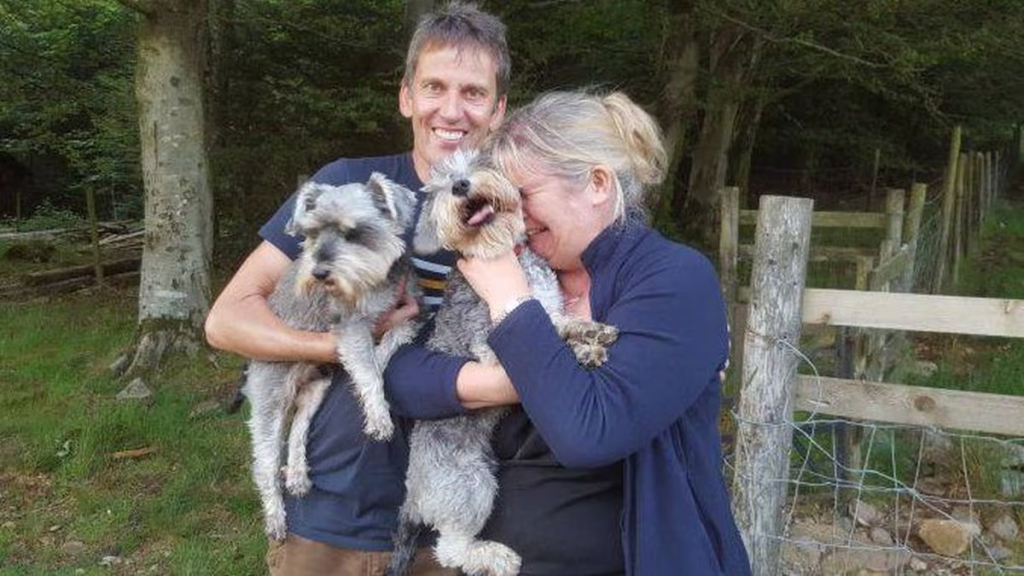Two beloved pet dogs that vanished while they were out for a walk in the hills are safe at home thanks to the smell of grilled sausages.

Miniature schnauzers Charlie and Theo were missing for four days after disappearing in thick fog on the Red Pike fell near Buttermere, Cumbria.
Distraught owners Liz and Graham Hampson launched a rescue campaign and sought help from mountain rescue teams, family and friends.
There was no sign of the dogs as more than 120 people and two drones scoured the hills, so Liz and Graham decided to try to lure them with their favourite bangers.
They set up a barbecue near the spot where Charlie and Theo, who are father and son, vanished and shouted the dogs’ names.

To their amazement, a short time later the dogs appeared through the trees, leading to an emotional reunion.
Liz, 49, from nearby Cockermouth, said: “When they first appeared it was like a mirage. I could not believe it was them.
“My husband ran up the hill to grab them as I was just shaking and crying. I could not function.
“The dogs are just gorgeous, and they are part of our family. It would be horrible not to have them around.

“They absolutely love sausages. They have them every Sunday for breakfast, so if there was one food they were going to come back for, it was sausages.”
Liz and Graham’s son John was walking Charlie, aged seven, and Theo, aged 15 months, on top Red Pike fell on June 16.
The weather turned at lunchtime and a thick mist rolled in, causing the 21-year-old to lose sight of the dogs.
He rang his mum straight away to let her know what had happened, and they immediately started to form a rescue party.

Liz said: “I was beside myself when John called. The dogs walk off lead when there is no livestock around and are used to being on the fells.
“It was a horrible phone call. We called our family and messaged friends and put out an appeal for people to look out for them on Facebook and Twitter.
“I also have a few friends who are part of mountain rescue groups so I asked if they could keep their eyes peeled if they were called out to a rescue.”
Liz and Graham spent the first night camping on the fell and calling the dogs’ names trying to get them to come back.
They then spent the next few days over Father’s Day weekend hiking all around the area in hot weather trying to find them.
On the morning of June 19, Mark Steel, a GP and member of Cockermouth Mountain Rescue Team, said the dogs were likely on the other side of the fell, near Gillerthwaite.
Together they hatched a plan to get the dogs back, and started barbecuing sausages.

Liz said: “It was great to see them appear through the trees.”
“They were thin, and they smelled, but thankfully they’d kept themselves hydrated in the heat.
“We took them to the vets the next day and they were given a clean bill of health.”
She added: “My son is in the navy and we rang him first to tell him. A huge cheer went up on his ship.
“Charlie and Theo are actually dad and son so we’re now joking they had a Father’s Day weekend.
“And they’ve told us nothing about what happened. I guess what goes on tour, stays on tour.”
“Cheering Up My Imperfect Birthday: Celebrating Me Despite Life’s Challenges”

Cheers to another year of your wonderful existence! Today marks a special day in your life, as you gracefully age like a fine wine. As you blow out the candles on your birthday cake, just remember that no one is perfect and it’s okay to have flaws. What matters most is the unique qualities that make you who you are. Take this opportunity to treat yourself with love and kindness, because you deserve it. Although not everyone may remember this special day, there are people who deeply care about you. So, embrace this moment and appreciate your worth. Here’s to hoping that the upcoming year is filled with joy, growth, and beautiful moments that will make your heart sing. Happy Birthday! 🎈💕



Leave a Reply